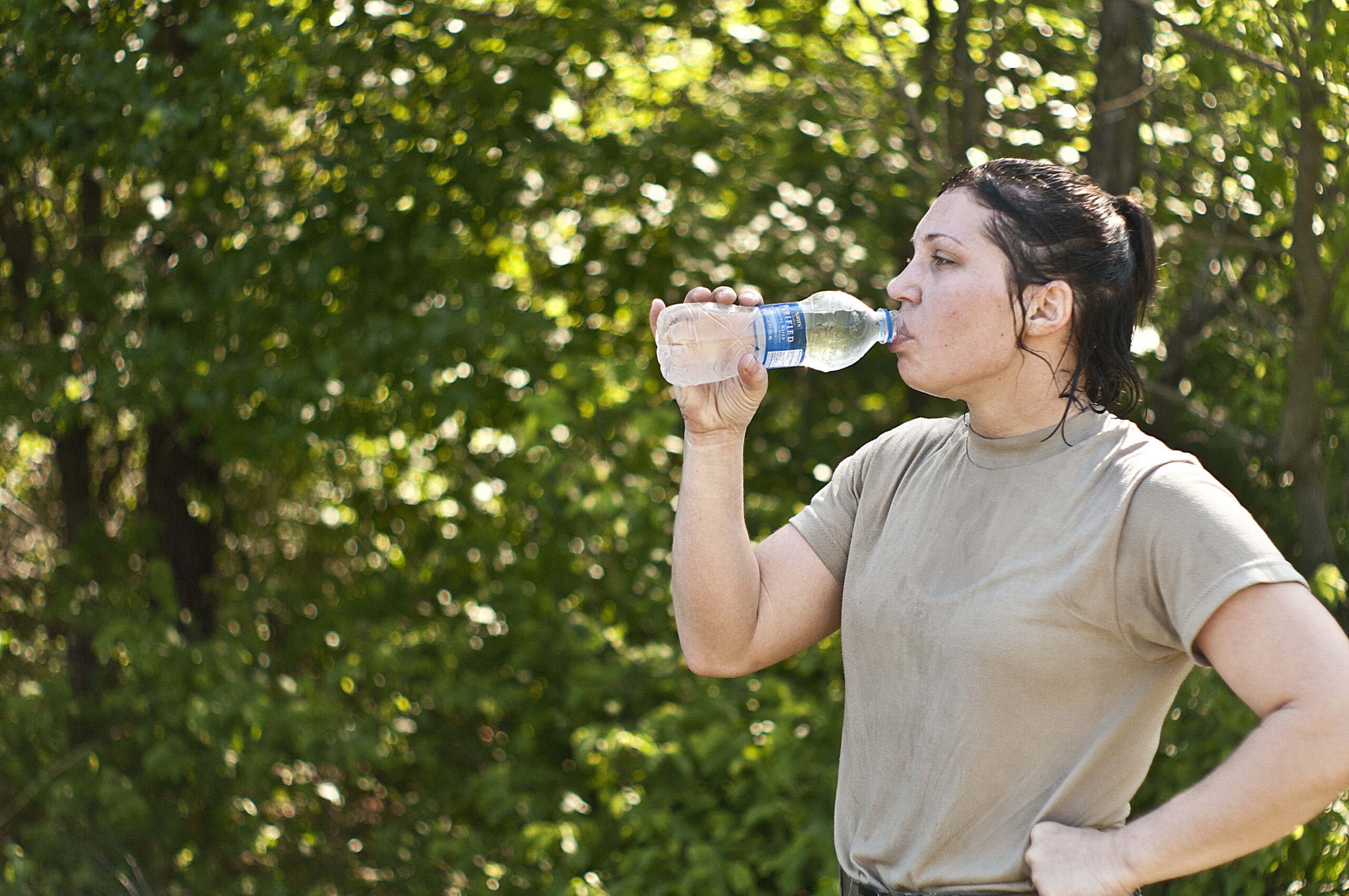- The App
- Sandboxx News
- Resources
Learn
- Company
About
Become a Partner
Support
- The App
- Sandboxx News
- Resources
Learn
- Company
About
Become a Partner
Support

When you picture Basic Training, you might think of early morning PT, ruck marches, and Drill Sergeants calling cadence. But there’s one factor working behind the scenes that powers every movement—hydration. Staying hydrated in BCT isn’t optional—it’s a mission-essential habit that affects your performance, focus, and overall survival.
The Army’s Holistic Health and Fitness (H2F) program focuses on five readiness domains: physical, nutritional, mental, spiritual, and sleep. Hydration directly supports at least two of these—physical and nutritional readiness. According to the H2F guide, proper hydration boosts energy, sharpens mental focus, and lowers your risk of injury. Simply put—water keeps you in the fight.
Regulates Core Temperature
You’ll sweat constantly in training, whether it’s a humid day at Fort Jackson or a cool morning at Fort Moore. Water keeps your body’s cooling system working, helping you avoid heat exhaustion or heat stroke.
Boosts Physical Performance
Your muscles are roughly 75% water. Even mild dehydration can cut your strength, endurance, and coordination—things you need for every obstacle course, ruck march, and ACFT event.
Supports Mental Focus
BCT is a mental test as much as a physical one. Hydration keeps your brain sharp so you can learn, react, and make decisions quickly under pressure.
Speeds Recovery
Water helps transport nutrients, remove waste, and reduce soreness—so you bounce back faster after tough training days.
Failing to hydrate can lead to cramps, dizziness, heat injuries, or even being pulled from training. In the Army, dehydration is preventable—and taken seriously. If you can’t keep up, you risk falling behind your battle buddies or getting recycled into another training cycle.
Your Drill Sergeants will remind you—constantly—to drink water before PT, after chow, and during every break. They’ve seen what happens when hydration is ignored, and they’ll make sure you don’t make that mistake.
Hydration isn’t just about surviving BCT—it’s about thriving in it. Every sip supports your strength, focus, and recovery, bringing you one step closer to earning the title U.S. Army Soldier. Remember the H2F truth: “Your body can’t perform at its best if it isn’t properly fueled—and water is your #1 fuel.”
I’ll be back next week with more tips and guidance. Until then, Hooah!
SGM Kris Broadus, U.S. Army (Retired)